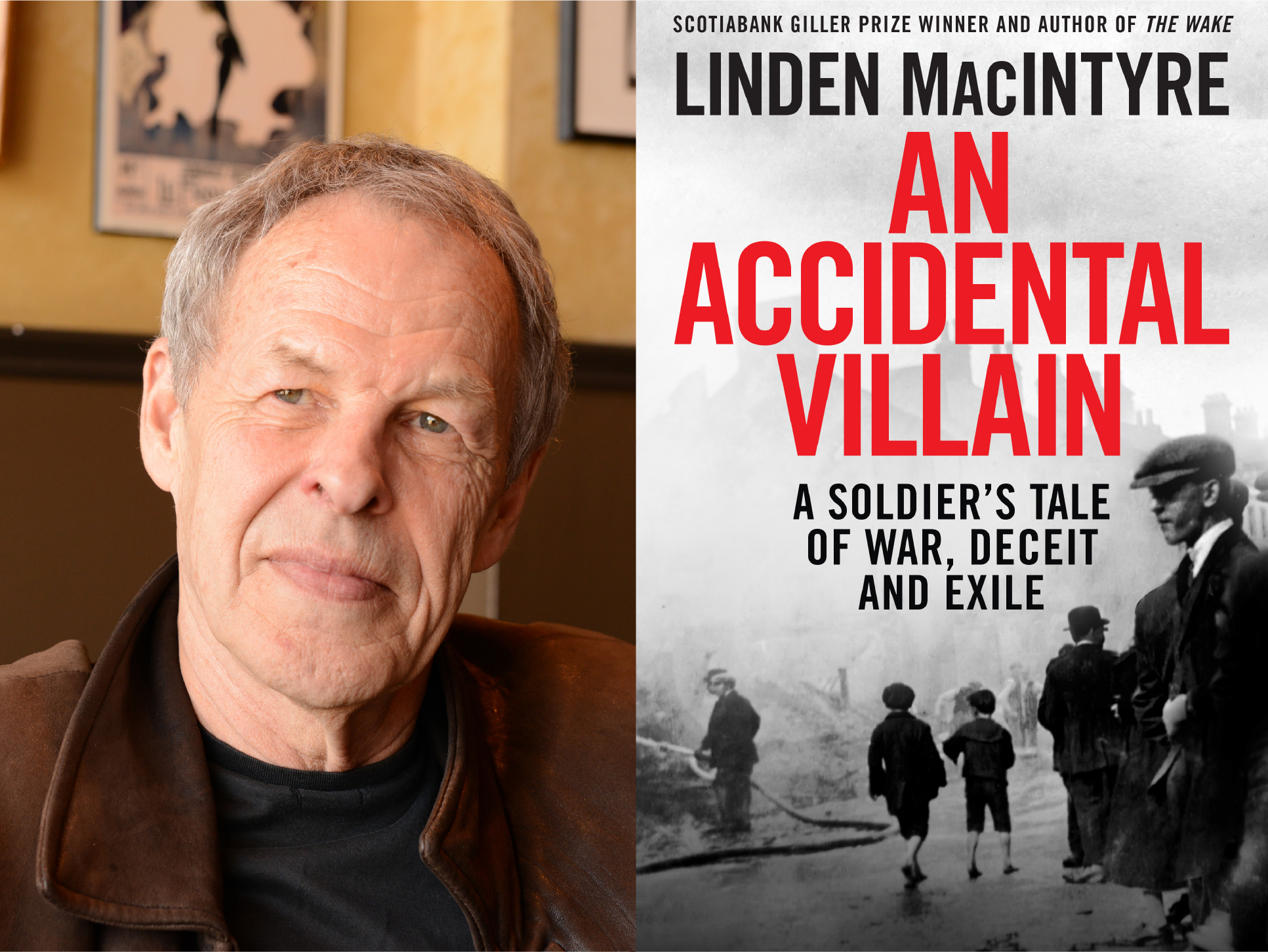


Linden MacIntyre’s first novel, The Long Stretch, was nominated for a CBA Libris Award and his boyhood memoir, Causeway: A Passage from Innocence, won both the Edna Staebler Award for Creative Non-fiction and the Evelyn Richardson Award. His second novel, The Bishop’s Man, was won the Giller Prize, among many other honours. The third book in the loose-knit trilogy, Why Men Lie, was named a Globe and Mail “Can’t Miss” Book. His other books include the novels Punishment, The Only Café, and The Winter Wives, and a work of non-fiction, The Wake. A distinguished broadcast journalist, MacIntyre spent twenty-four years as the co-host of the fifth estate and won ten Gemini awards for his work. He lives in Toronto with his wife, journalist and author Carol Off. They spend their summers in a Cape Breton village by the sea.
A formidable story of a forgotten hero of British imperialism who was a villain to those he crushed under the iron hand of the empire. Writing with a novelist’s eye, MacIntyre captures the grim civil war in Ireland in a sweeping history of violence and insurrection, reminding us of how the past continues to haunt us in the present.”–Tim Cook, author of Vimy: The Battle and The Legend
From the bestselling, prize-winning author Linden MacIntyre comes an engrossing, page-turning exploration of the little-known life of Sir Hugh Tudor. Appointed by his friend Winston Churchill to lead the police in Ireland during the Irish War of Independence, Tudor met civil strife and domestic terrorism with indiscriminate state-sanctioned murder—changing the course of Irish history.
After distinguishing himself on the battlefields of the First World War, Major-General Sir Hugh Tudor could have sought a respectable retirement in England, his duty done. But in 1920, his old friend Winston Churchill, Minister of War in Lloyd George’s cabinet, called on Tudor to serve in a very different kind of conflict—one fought in the Irish streets and countryside against an enemy determined to resist British colonial authority to the death. And soon Tudor was directing a police force waging a brutal campaign against rebel “terrorists,” one he was determined to win at all costs—including utilizing police death squads and inflicting brutal reprisals against IRA members and supporters and Sinn Féin politicians.
Tudor left few traces of his time in Ireland. No diary or letters that might explain his record as commander of the notorious Black and Tans. Nothing to justify his role in Bloody Sunday, November 21, 1920, when his men infamously slaughtered Irish football fans. And why did a man knighted for his efforts in Ireland leave his family and homeland in 1925, moving across the sea to Newfoundland?
Linden MacIntyre has spent four years tracking Tudor through archives, contemporaries’ diaries and letters, and the body count of that Irish war. In An Accidental Villain, he delivers a consequential and fascinating account of how events can bring a man to the point where he acts against his own training, principles and inclination in the service of a cause—and ends up on a long journey toward personal oblivion.
In the spirit of reconciliation, we acknowledge that we live, work and play on the traditional territories of the Blackfoot Confederacy (Siksika, Kainai, Piikani), the Tsuut’ina, the Iyarhe Nakoda Nations, the Otipemisiwak Métis Government of the Métis Nation within Alberta District 6, and all people who make their homes in the Treaty 7 region of Southern Alberta.